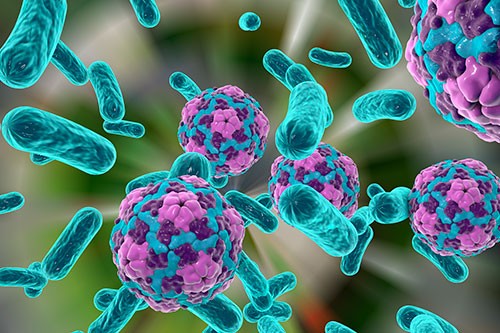Hepatitis A is a highly contagious liver infection caused by the hepatitis A virus (HAV). While it can range from a mild illness lasting a few weeks to a severe illness lasting several months, understanding the sources of infection is crucial for prevention. A significant number of hepatitis A infections stem from consuming contaminated food or water. Let’s delve into which foods are most commonly associated with the virus and how to protect yourself.
Hepatitis A: Understanding the Basics
Hepatitis A virus (HAV) infection leads to liver disease and can manifest through symptoms like fatigue, nausea, vomiting, abdominal pain, jaundice, dark urine, and pale stool. Symptoms usually appear within 15 to 50 days after exposure. While most people recover completely, chronic hepatitis A infection is possible, leading to severe health problems like liver failure.
Common Food Sources of Hepatitis A
While hepatitis A outbreaks in the U.S. are relatively uncommon, certain foods are more frequently linked to contamination. These include:
- Shellfish: Consuming raw or undercooked shellfish from contaminated waters poses a risk.
- Raw Vegetables and Fruits (especially berries): Fresh produce, particularly berries, can become contaminated during growing, harvesting, or processing.
- Salads: Salads, especially those prepared commercially, can be a source if ingredients are contaminated and proper hygiene isn’t followed during preparation.
- Water: Although less common in developed countries, contaminated water sources can lead to hepatitis A outbreaks.
It’s important to note that contamination often occurs when infected food handlers prepare food without proper handwashing hygiene.
Who Is Most At Risk?
While anyone can contract hepatitis A, some groups are more susceptible:
- Travelers to countries with high rates of hepatitis A.
- People who have unprotected sexual contact with someone who has hepatitis A.
- Users of injection and illegal drugs.
- Individuals with chronic liver disease.
- People who work with HAV-infected animals or in research labs.
Prevention Strategies: Protecting Yourself from Hepatitis A
Given the potential severity of hepatitis A, prevention is key. Here are some steps you can take:
- Vaccination: The CDC recommends hepatitis A vaccination for all children at age 1 year and for at-risk adults.
- Proper Handwashing: Wash hands thoroughly with soap and warm water for at least 20 seconds before preparing or eating food, after using the bathroom, and after changing diapers.
- Safe Food Handling:
- Wash fruits and vegetables thoroughly, especially those eaten raw.
- Cook shellfish thoroughly. Avoid eating raw or undercooked shellfish.
- Use separate cutting boards for raw meats and produce.
- Avoid Contaminated Water: Drink bottled water or boil water for at least one minute when traveling to areas with poor sanitation.
Treatment and Post-Exposure Prophylaxis (PEP)
If you suspect you’ve been exposed to hepatitis A, the CDC recommends post-exposure prophylaxis (PEP) for unvaccinated individuals who have consumed potentially contaminated food or water within two weeks of exposure. PEP options include:
- Hepatitis A vaccine (for people aged 1-40).
- Hepatitis A virus-specific immunoglobulin (IG) for those outside that age range, although the vaccine can be substituted if IG is unavailable.
If you’re unsure about your vaccination status, contact your healthcare provider.
Advice for Restaurants and Retailers
Retailers, restaurants, and food service operators play a critical role in preventing hepatitis A outbreaks. They should:
- Ensure employees practice proper handwashing hygiene.
- Thoroughly clean and sanitize food preparation surfaces and utensils.
- Contact the local health department and inform customers if potentially contaminated food has been handled.
Conclusion
Hepatitis A, while preventable, can have serious health consequences. By understanding the food sources associated with the virus and practicing proper hygiene and food handling techniques, you can significantly reduce your risk. Vaccination remains the most effective way to protect yourself from hepatitis A. If you experience symptoms or suspect exposure, consult a healthcare professional immediately.
